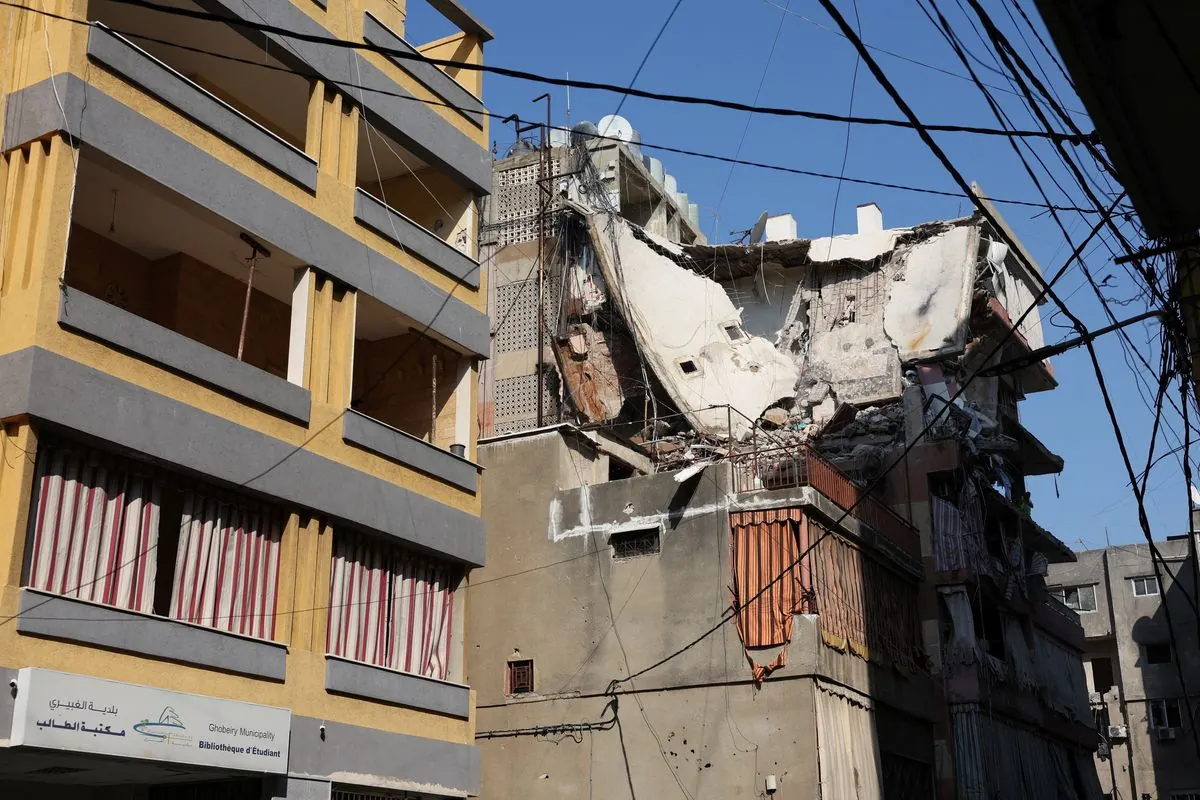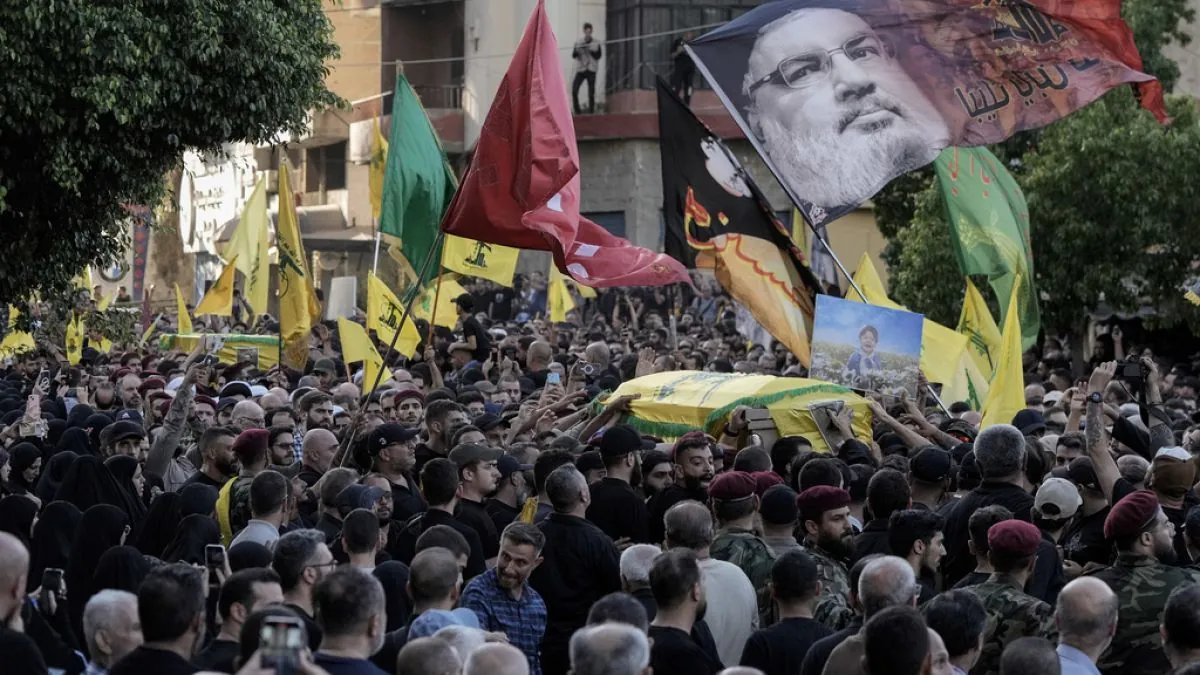Israeli Airstrike Targets Hezbollah Commander in Beirut Suburb
Israeli forces conducted a second consecutive airstrike in Beirut's southern suburbs, reportedly targeting a Hezbollah commander. The strike hit a building in Ghobeiry, with the target's fate unknown.

On September 24, 2023, Israeli forces conducted an airstrike in the southern suburbs of Beirut, Lebanon. This operation, occurring for the second consecutive day in the area, reportedly targeted a Hezbollah commander, according to two Lebanese security sources.
The strike focused on a five-story building in the Ghobeiry neighborhood, a typically bustling area. One security source provided photographic evidence showing damage to the structure's top floor. The identity and condition of the targeted individual remain undisclosed.
Hezbollah, a Shia Islamist political party and militant group established in 1985, maintains a strong presence in Beirut's southern suburbs. The organization, founded during the Lebanese Civil War, has evolved into a significant force in Lebanese politics and society, operating an extensive social services network alongside its military wing.
Israel's military confirmed executing a targeted strike in Beirut but refrained from offering additional details. This recent action underscores the ongoing tensions between Israel and Hezbollah, which have a long history of conflict, including the 2006 Lebanon War.

The frequency of these strikes highlights the complex dynamics in the region. Hezbollah, considered a terrorist organization by several countries, receives substantial support from Iran and has been involved in the Syrian Civil War, supporting the Assad government. The group's military capabilities, including a large arsenal of rockets and missiles, contribute to the volatile situation along the Lebanon-Israel border.
Lebanon's political landscape, based on a confessional system, further complicates matters. Despite Hezbollah's significant presence in the Lebanese parliament, Israel and Lebanon lack formal diplomatic relations. The United Nations Interim Force in Lebanon (UNIFIL) operates along the border, attempting to maintain stability in the area.
As tensions continue to escalate, the international community watches closely. The situation remains fluid, with potential implications for regional security and diplomatic relations in the Middle East.


































